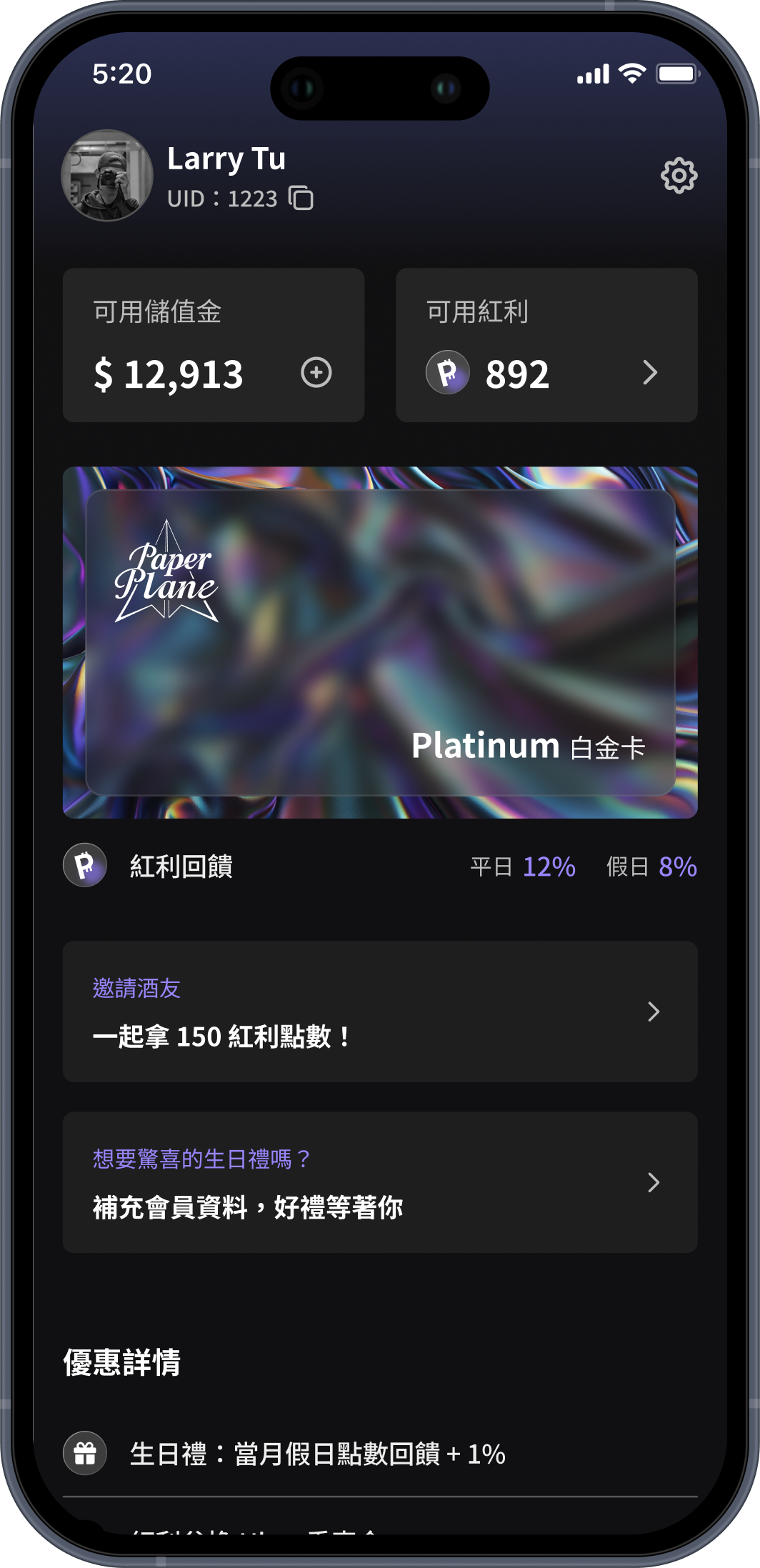國際客座修法連署
(匿名 3719 人)
我支持「國際客座」不該被法規扼殺
您的連署支持可以幫助調酒產業,在接下來的協調會議中擁有更多的 立委願意出席支持,並且促使 有關部門研討最佳解決方案
| 編號 | 組織 | 職稱 | 姓名 |
|---|---|---|---|
| ... | ... | ... | ... |
| 5721 | * | 消費者 | * |
| 5722 | 泡泡飯店 | 調酒師 | 程*盛 |
| 5723 | * | 消費者 | * |
| 5724 | 無 | 消費者 | 林*安 |
| 5725 | * | 消費者 | * |
| 5726 | * | 股東/投資人 | * |
| 5727 | * | 消費者 | * |
| 5728 | * | 消費者 | * |
| 5729 | * | 消費者 | * |
| 5730 | * | 消費者 | * |
| 5731 | * | 其他 | * |
| 5732 | 無 | 消費者 | 許* |
| 5733 | 無 | 股東/投資人 | 鄭*棋 |
| 5734 | * | 消費者 | * |
| 5735 | * | 消費者 | * |
| 5736 | * | 消費者 | * |
| 5737 | * | 其他 | * |
| 5738 | 無 | 消費者 | 許*維 |
| 5739 | 無 | 其他 | 陳*宏 |
| 5740 | 無 | 消費者 | 謝*恩 |
| 5741 | * | 消費者 | * |
| 5742 | 無 | 消費者 | 莫*平 |
| 5743 | * | 調酒師 | * |
| 5744 | 無 | 消費者 | 鄭*麟 |
| 5745 | * | 消費者 | * |
| 5746 | * | 消費者 | * |
| 5747 | 伍樓 | 股東/投資人 | 楊*穎 |
| 5748 | 無 | 消費者 | 林*廷 |
| 5749 | * | 吧備/助手 | * |
| 5750 | * | 消費者 | * |
| 5751 | 朝代畫廊 | 消費者 | 劉*圃 |
| 5752 | 無 | 消費者 | 蘇*盛 |
| 5753 | 無 | 股東/投資人 | 蘇*盛 |
| 5754 | * | 消費者 | * |
| 5755 | 無 | 消費者 | 陳*彤 |
| 5756 | * | 消費者 | * |
| 5757 | 無 | 消費者 | C*n*i* |
| 5758 | * | 消費者 | * |
| 5759 | * | 店長 | * |
| 5760 | 無 | 消費者 | 劉*瑋 |
| 5761 | 無 | 消費者 | 林*峰 |
| 5762 | * | 消費者 | * |
| 5763 | 忍者飛鏢酒吧 | 消費者 | 陳*琳 |
| 5764 | * | 消費者 | * |
| 5765 | 無 | 消費者 | 陳*龍 |
| 5766 | * | 消費者 | * |
| 5767 | 無 | 股東/投資人 | 陳*毅 |
| 5768 | 無 | 股東/投資人 | 陳*毅 |
| 5769 | * | 消費者 | * |
| 5770 | 愛喝酒的朋友 | 消費者 | 林*薏 |
修法請願書全文
(English Below)陳情人:
代表 涂立青
會同台灣餐飲產業創辦人與從業人員 (連署簽名進行中)
陳情主旨:
建請修改現行法規,放寬國外餐飲大師來台短期客座之雇主資格限制,與簡化申請流程,促進台灣餐飲產業發展
相關法條:
A. 就業服務法
第 42 條
為保障國民工作權,聘僱外國人工作,不得妨礙本國人之就業機會、勞動條件、國民經濟發展及社會安定。
第 43 條
除本法另有規定外,外國人未經雇主申請許可,不得在中華民國境內工作。
第 48 條
雇主聘僱外國人工作,應檢具有關文件,向中央主管機關申請許可。
B. 勞動發管字第 1070507378 號函
在不影響本國人工作機會情況下,勞動部彙整意見後,如符合附表所列情形之行為,尚非屬就業服務法第 43 條規定範疇,無須申請工作許可,倘不在附表列舉範圍,仍依勞職外字第 0950502128 號函釋及個案事實認定
陳情緣由:
近年來,台灣餐飲業在國際間嶄露頭角,台北、台中皆有餐廳獲得米其林星級肯定,亦有多家餐廳入選亞洲 50 大餐廳/酒吧國際獎項。在各方努力下,台灣餐飲產業正朝向精緻化、國際化的方向發展,帶動觀光人潮,本地廚師、調酒師也持續精進技術,追求卓越。
然而,餐飲業者若欲邀請國外大師來台進行客座,分享國際化經驗,與工作流程,卻面臨諸多困難。
- 現行規定要求邀請國外人士來台工作,需具備最近1年或前3年度平均營業額達新臺幣 1,000 萬元以上,對許多精緻化小規模經營之餐飲業者而言,門檻過高,申請不易。
- 現行法規針對外國人來台工作所設計之申請流程,並未將「短期一次性」的工作,與「長期在台就業」進行拆分,因此申請的行政程序相當繁瑣、耗時:
- 餐飲業人力短缺,實務上與國際大師溝通,因語言時差及資料收集往返相當曠日費時,餐廳無法撥出人力專職進行行政流程申請,以目前實務上的申請流程,兩到三週的審核往復,再加上事前約需要一個月的密集溝通來確認活動時間與收集資料,餐廳需要在「事前 2 個月」就開始安排一場「為期 1 天的客座」,並且不一定能通過審核
- 國際大師時間緊湊,有時是當周得知該大師在鄰近國家工作,即時邀請到台灣進行客座,可以節省大量的交通成本,減輕餐廳負擔,無法在兩個月前完成邀請
- 同一時間可能有多國餐廳業者向國際大師進行客座邀請,目前台灣於國際餐飲業正處於新興階段,相較於日韓歐美並無顯著拉力,而若又需要向大師請求冗長且繁複的資料,會大幅降低邀請成功率
導致目前店家進行客座多以不通報的方式進行,潛在風險是需面臨最高 75 萬的鉅額罰款,而近期餐飲業界多間店因此受罰,導致國際客座進入停滯期。
此規定原立意在保障本地就業,卻反而阻礙了餐飲產業進一步發展的可能性:
- 國際大師無法來台交流、客座,不僅減損台灣餐飲的國際能見度,也錯失了產業向國際大師學習的機會,恐將落後他國。
- 許多餐飲從業人員,希望能更上層樓與國際接軌,如今此路已斷,中小型餐飲業者難以藉由客座吸引新人才、提升品牌價值,面臨募資、徵才困境,連帶影響就業市場。
- 國際大師來台,亦能刺激消費,帶動消費者認知升級,有助於帶動產業發展,如今的法規無異砍斷台灣精緻餐飲產業發展的火車頭。
目前台灣約有 13 萬家餐飲業者,其中超過12萬家是中小型業者,他們都能因法規鬆綁而獲益。
餐飲業現有 55 至 60 萬名從業人員,他們的職涯發展也將受到法規改革的正面影響。近兩年,已有超過 50 家台灣餐廳在米其林指南及亞洲 50 最佳餐廳/最佳酒吧獎項,獲得國際肯定,突顯我國餐飲產業的巨大潛力。放寬客座限制,將有助台灣餐飲界與國際接軌,加速成長。
相關工作規定之立法精神,為避免排擠本地就業,因客座時間多為「一至兩天」,透過修法可限制單次客座天數與年度總天數,避免排擠效應。而因國外大師造訪帶來的觀光財、品牌聲譽提升等外溢效果,反而更能創造就業機會,激勵產業升級。
為突破當前僵局,建議主管機關研議鬆綁法規,針對餐飲業者邀請國外人士來台進行短期客座(3 天內),訂定較為彈性的申請標準與程序,以促進餐飲人才國際交流,提振產業向上發展的動能。如此不僅能為台灣注入新的飲食思維,更能帶動周邊產業,創造更多元的就業機會。
允准見復為盼。
Full Text of the Amendment Petition
Petitioner:
Representative Tu Li-ching
Together with the founders and practitioners of the Taiwanese food and beverage industry (petition signatures in progress)
Petition Subject:
Request to amend current regulations to relax employer qualification restrictions for short-term guest lecturers from overseas in the food and beverage industry, simplify the application process, and promote the development of Taiwan's food and beverage industry
Relevant Laws and Regulations:
A. Employment Service Act
Article 42
To protect the right to work of the citizens, the employment of foreign workers shall not adversely affect the employment opportunities, working conditions, economic development, and social stability of the citizens.
Article 43
Unless otherwise specified in this Act, no foreign worker may work within the territory of the Republic of China if his/her employer has not applied for permission.
Article 48
An employer who intends to employ a foreign worker shall submit relevant documents to the central competent authority for employment permission.
B. Lao-Dong-Fa-Guan-Zi No. 1070507378
Under the circumstances that do not affect the employment opportunities of the citizens, if the conditions listed in the attached table are met after the Ministry of Labor compiles opinions, they do not fall within the scope of Article 43 of the Employment Service Act and do not require work permits. If not listed in the attached table, it shall still be determined in accordance with Lao-Zhi-Wai-Zi No. 0950502128 and individual case facts.
Reasons for Petition:
In recent years, Taiwan's food and beverage industry has made a name for itself internationally, with restaurants in Taipei and Taichung receiving Michelin star recognition and several restaurants being selected for international awards such as Asia's 50 Best Restaurants/Bars. With the efforts of all parties, Taiwan's food and beverage industry is developing towards refinement and internationalization, driving tourist crowds, and local chefs and bartenders continue to improve their skills and pursue excellence.
However, if food and beverage operators want to invite masters from abroad to come to Taiwan for guest lectures, share international experiences and work processes, they face many difficulties.
- Current regulations require inviting foreign individuals to work in Taiwan to have an average annual turnover of NT$10 million or more in the most recent year or the previous three years, which is too high a threshold and difficult to apply for many small-scale, refined food and beverage operators.
- The current application process designed for foreign individuals to work in Taiwan does not separate "short-term one-time" work from "long-term employment in Taiwan", so the administrative procedures for application are quite cumbersome and time-consuming:
- The food and beverage industry is short of manpower. In practice, communicating with international masters is very time-consuming due to language differences and data collection back and forth. Restaurants cannot allocate dedicated personnel to carry out administrative application procedures. With the current practical application process, it takes two to three weeks of review and communication, plus about a month of intensive communication in advance to confirm the event time and collect information. Restaurants need to start arranging a "one-day guest lecture" two months in advance, and it is not guaranteed to pass the review.
- International masters have tight schedules. Sometimes they learn that the master is working in a neighboring country that week and invite them to Taiwan for a guest lecture, which can save a lot of transportation costs and reduce the burden on the restaurant, but it is impossible to complete the invitation two months in advance.
- Multiple restaurant operators from different countries may invite international masters for guest lectures at the same time. Currently, Taiwan is in an emerging stage in the international food and beverage industry and does not have a significant pull compared to Japan, Korea, Europe, and the United States. If we also need to request lengthy and complicated information from the masters, it will greatly reduce the success rate of invitations.
As a result, currently, many stores conduct guest lectures without reporting, and the potential risk is facing a huge fine of up to NT$750,000. Many stores in the food and beverage industry have been penalized for this recently, causing international guest lectures to enter a stagnant period.
This regulation was originally intended to protect local employment, but it has instead hindered the possibility of further development of the food and beverage industry:
- International masters cannot come to Taiwan for exchange and guest lectures, which not only reduces the international visibility of Taiwan's food and beverage industry but also misses the opportunity for the industry to learn from international masters and may fall behind other countries.
- Many food and beverage practitioners hope to reach new heights and connect with the international community. Now that this path has been cut off, it is difficult for small and medium-sized food and beverage operators to attract new talent and enhance brand value through guest lectures, facing fundraising and recruitment difficulties, which in turn affects the job market.
- The arrival of international masters in Taiwan can also stimulate consumption, drive consumer awareness and upgrades, and help drive industry development. The current regulations are no different from cutting off the locomotive of Taiwan's refined food and beverage industry development.
Currently, there are about 130,000 food and beverage operators in Taiwan, of which more than 120,000 are small and medium-sized operators, and they can all benefit from the relaxation of regulations.
The food and beverage industry currently has 550,000 to 600,000 practitioners, and their career development will also be positively affected by regulatory reforms. In the past two years, more than 50 Taiwanese restaurants have been recognized internationally in the Michelin Guide and Asia's 50 Best Restaurants/Bars awards, highlighting the enormous potential of our country's food and beverage industry. Relaxing guest lecture restrictions will help Taiwan's food and beverage industry connect with the international community and accelerate growth.
The legislative spirit of relevant work regulations is to avoid crowding out local employment. Since guest lectures are mostly "one to two days", the number of days for a single guest lecture and the total number of days per year can be limited through amendments to avoid crowding out effects. The spillover effects brought by the visits of foreign masters, such as tourism revenue and brand reputation enhancement, can instead create more employment opportunities and stimulate industry upgrades.
To break the current deadlock, it is recommended that the competent authority consider relaxing regulations and setting more flexible application standards and procedures for food and beverage operators inviting foreigners to Taiwan for short-term guest lectures (within 3 days) to promote international exchange of food and beverage talents and boost the upward development momentum of the industry. This will not only inject new food and beverage ideas into Taiwan but also drive related industries and create more div



